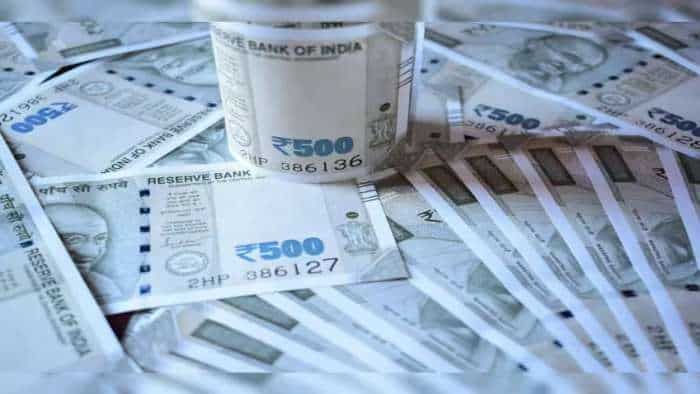Saudi-US Petrodollar Deal: What the end of an era means for dollar & EMs like India?
As with the cessation of the multi-year Saudi-US petroldollar agreement, there is an anticipation that dollar demand could see a decline globally. Some analysts feel that there is a threat to its value as well.
)
An age-old deal between the United States and Saudi Arabia - known as the Petrodollar deal and spanning 50 years (established in 1974) - lapsed in June. Saudi Arabia's reported refusal to renew the Petrodollar deal, which required top oil producers such as Saudi to price their crude exports exclusively in the American currency, left looming concerns across the global financial markets regarding the impact on the greenback. The Petrodollar deal enhanced the dollar's status as the global reserve currency.
Here is a lowdown on the deal and the likely implications of its termination on the world markets, the greenback as well as emerging markets like India.
What was the Saudi-US Petrodollar deal?
As part of the deal, Saudi Arabia agreed to trade crude in American dollars (USD) with the US in exchange for military assistance and equipment. The term 'Petrodollar' here implies the dollars earned by oil-exporting nations such as Saudi through trade in the commodity. As per Investopedia, the term gained currency in the mid-1970s when soaring oil prices resulted in large trade as well as current account surpluses for oil-exporting nations.
Saudi Arabia reportedly entered the arrangement primarily to gain support against Iran and other nations.
So now, after the deal has lapsed, Saudi Arabia is no longer bound to trade crude in US dollars and can trade in the commodity in any of its preferred currencies.
Pertinently, the Gulf nation will now be trading in the commodity in multiple currencies such as the Chinese RMB, the Chinese yuan, the Japanese yen, the Indian rupee (INR), and the euro as against the otherwise exclusive dealing in US dollars.
Many analysts believe that the cessation of the deal is likely to have implications for both global geopolitical and economic dynamics.
Implications of the end of the Saudi-US Petrodollar deal
The system of crude oil trade in US dollars played a pivotal role in maintaining the greenback as the global reserve currency. Oil producers - including Saudi - Arabia agreed to transact in the US dollars while trading in oil, pushing global demand for the currency.
Nonetheless, as the deal stands cancelled now, there is a threat that the global demand for the US dollar may decline, potentially leading to its depreciation.
There has been little impact of the termination of the deal on the US dollar, market expert Ajay Bagga told Zeebiz.com.
As of July 11, the dollar index - which measures the greenback against six peers other than the rupee, namely the Euro, the Swiss franc, the yen, the Canadian dollar, the British pound, and the Swedish krona - has remained flat, staging only rangebound moves between 104.3 and 106.1 levels. The rupee has also remained largely unchanged during this period.
"Firstly, it is not as important as to which currency is used to pay for Saudi oil. The more important question is: Will Saudi continue to invest its export surplus in US dollar assets? That continues. Second, the US dollar is needed for the entire oil infrastructure from financing, insuring, transportation and refining. That status continues. Hence, there is not much impact," explained Bagga.
"India has increased its share of purchases of Russian oil, a deal being denominated in rupees. As such, the Saudi-US deal expiry has had minimal impact on India," he added.
Rahul Kalantri-VP (Commodities) at Mehta Equities noted that if oil stops being priced in dollars, the U.S. dollar and its financial markets could also weaken. Global demand for the dollar might drop, leading to higher inflation, interest rates, and a weaker bond market in the U.S.
Also, there can be an instance wherein Saudi can consider using digital currencies like Bitcoin for transactions for selling oil, he added.
So as the dollar's position as the global reserve currency is threatened with the termination of the petrodollar agreement, other currencies namely the Chinese Yuan, Russian Ruble and INR may become more important in the global oil trade, accelerating the current de-dollarization trend in the global trade.
Get Latest Business News, Stock Market Updates and Videos; Check your tax outgo through Income Tax Calculator and save money through our Personal Finance coverage. Check Business Breaking News Live on Zee Business Twitter and Facebook. Subscribe on YouTube.
RECOMMENDED STORIES

Top 7 Large and Mid Cap Mutual Funds With up to 21% SIP Returns in 10 Years: Rs 11,111 monthly SIP investment in No. 1 fund has sprung to Rs 40,45,114; know about others

Want to use market crash as a buying opportunity? Analysts suggest buying Bharti Airtel, HDFC Life and 3 more shares for up to 39% gains
09:50 AM IST









 Rupee falls 12 paise to all-time low of 85.06 against US dollar in early trade
Rupee falls 12 paise to all-time low of 85.06 against US dollar in early trade Rupee falls 1 paisa to 84.92 against US dollar in early trade
Rupee falls 1 paisa to 84.92 against US dollar in early trade Rupee rises 6 paise to 84.35 against US dollar in early trade
Rupee rises 6 paise to 84.35 against US dollar in early trade Rupee vs Dollar: Domestic Currency hits record low against US Dollar in afternoon trade
Rupee vs Dollar: Domestic Currency hits record low against US Dollar in afternoon trade Rupee gains 1 paisa to 84.06 against US dollar in early trade
Rupee gains 1 paisa to 84.06 against US dollar in early trade